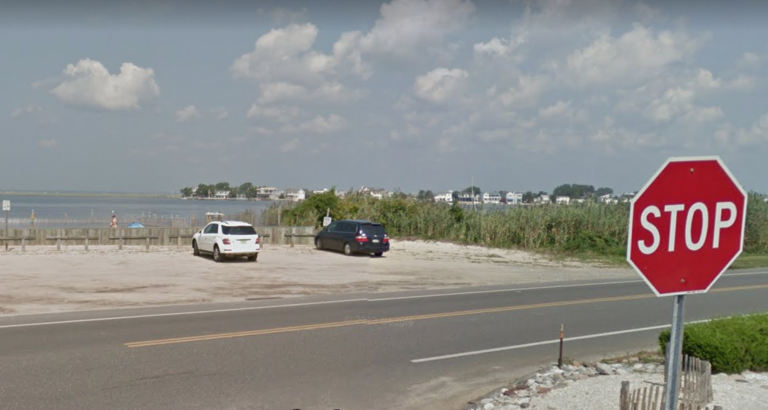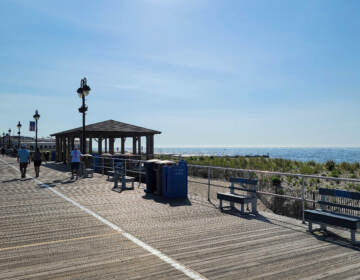Fecal bacteria leads to another swimming ban at Barnegat Bay beach
For the second time in a week, swimming is temporarily prohibited at a Long Beach Island bay beach due an unacceptable level of fecal bacteria.

The 25th Street Barnegat Bay beach in Barnegat Light. (Google Images)
UPDATE: The New Jersey Department of Environmental Protection has reopened the 25th Street Barnegat Bay beach in Barnegat Light for swimming after an acceptable resampling result, officials said.
For the second time in a week, swimming is temporarily prohibited at a Long Beach Island bay beach due an unacceptable level of fecal bacteria.
According to the state Department of Environmental Protection, a swimming ban was posted at the 25th Street Barnegat Bay beach in Barnegat Light.
“The closure applies to water activities like swimming, wading, and playing in the water. Other beach-related activities like sunbathing and walking on the beach are unaffected,” a state policy guide said.
Beaches are closed if two consecutive samples collected at a bathing beach exceed the state standard and remain in effect until subsequent sampling indicates bacteria levels are again below the standard, according to the DEP.
The standard for the acceptable level of enterococcus, a bacteria found in the intestines of warm-blooded animals that can cause urinary tract infections, bacteremia, bacterial endocarditis, diverticulitis, and meningitis, is 104 colonies per 100 ml of water.
A sample collected at the beach on Tuesday registered 180, down from 280 on Monday, according to njbeaches.org. State officials recollected samples Wednesday and will issue the results Thursday.
After a temporary swimming prohibition at the beach last week, water activities were permitted by last Thursday.
As of August 1, no other beaches are closed or under swimming advisories.
Some waterways, especially rivers and bays, are typically susceptible to higher bacteria levels after rainfall and associated storm runoff.
During the summer season, the state routinely tests water quality at 188 ocean beaches, 20 bay beaches, and eight river beaches. You can check water quality at your local beaches here.
The state also conducts coastal surveillance flights that operate six days per week from mid-May to mid-September, weather permitting, looking for issues such as excessive algae blooms or debris that might affect water quality.
WHYY is your source for fact-based, in-depth journalism and information. As a nonprofit organization, we rely on financial support from readers like you. Please give today.




